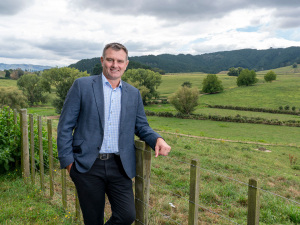Fonterra’s exit from Australia ‘a major event’
Fonterra’s impending exit from the Australian dairy industry is a major event but the story doesn’t change too much for farmers.
 Rabobank's Bruce Weir says not surprisingly, dairy farmers continue to be the most optimistic of all the sector groupings.
Rabobank's Bruce Weir says not surprisingly, dairy farmers continue to be the most optimistic of all the sector groupings.
The Rabobank Rural Confidence Survey found farmers' expectations for their own business operations had also improved, with the net reading on this measure lifting to +37% from +19% previously.
As with headline confidence, this is the strongest reading on this measure since mid-2017.
Not surprisingly, dairy farmers continue to be the most optimistic of all the sector groupings, with close to 7 in 10 now expecting an improved performance from their own operation across the next 12 months.
Sheep and beef farmers were also markedly more upbeat about the prospects for their own businesses, with 3 in 10 expecting improved performance and only 1 in 10 now expecting performance to worsen.
Rabobank's general manager for country banking, Bruce Weir says horticulturists bucked the upwards trend, recording a lower reading on this measure.
"Growers are still broadly positive about the year ahead for their own operations - with more expecting their own farm business performance to improve than those expecting it to worsen - but they are less optimistic than in September and are now the most pessimistic of all the sector groupings, he said.
"Horticulturalists haven't seen the same recent price revival as their counterparts in the pastoral sectors, and lingering concerns over farm input prices and the outlook for overseas markets appear to be holding sentiment back."
The survey found farmers' investment intentions increased with the net reading on this measure lifting to +18% from +2% previously.
Dairy farmers recorded the strongest investment intentions, increasing to a net reading of +39% (from +21% previously) while investment intentions among sheep and beef farmers also rose (net reading of +2% from -17% last quarter). Horticulturalists' investment intentions were marginally weaker falling to a net reading of -5% (-3% previously).
Dairy Women's Network (DWN) has announced that Taranaki dairy farmer Nicola Bryant will join its Trust Board as an Associate Trustee.
Rural Women New Zealand (RWNZ) says it welcomes the release of a new report into pay equity.
Red meat exports to key quota markets enjoyed $1.4 billion in tariff savings in the 2024-25 financial year.
Remediation NZ (RNZ) has been fined more than $71,000 for discharging offensive odours described by neighbours as smelling like ‘faecal and pig effluent’ from its compositing site near Uruti in North Taranaki.
Two kiwifruit orchards in the Bay of Plenty and one in Northland are this year's finalists for the Ahuwhenua Trophy competition.

OPINION: A mate of yours truly reckons rural Manawatu families are the latest to suffer under what he calls the…
OPINION: If old Winston Peters thinks building trade relations with new nations, such as India, isn't a necessary investment in…